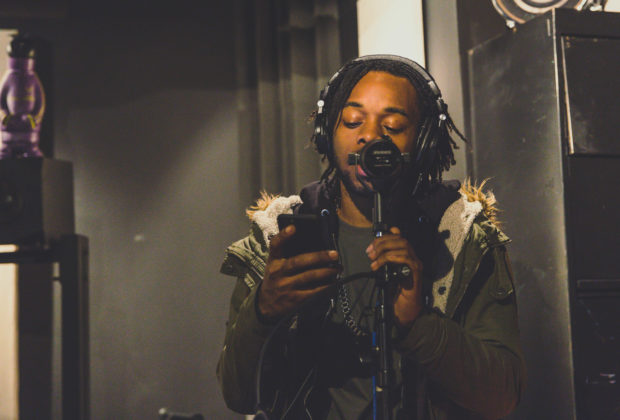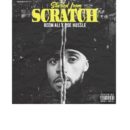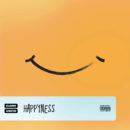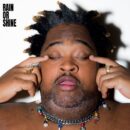(This piece is republished with permission from TeamBackPack. It is reprinted here in its original form, with updated links.)
I don’t believe in God much most days. When people ask, that’s probably the hardest part of explaining the bible quote tattooed on my forearm, though it’s the most obvious part to me, or the part that makes the most sense. Of course, I have nine words from the King James inked on my wrist; The Bible contains some of the most important words in modern history, and words mean a lot to me. Almost as much as how we, as artists, choose to use them. “Rhythm and Poetry;” Hip-hop culture has always understood this.
Who am I as an artist and creator in hip-hop? I ask myself this constantly, daily.
It is a defining question for my identity, because it is everything I am, in important ways, and defined by everything I’m not. I’m not a rapper. I’m not an artist manager really; I’m not a shuckster or hype man either. And I’m not black, though that’s a much longer conversation.
I am a fan of this music, a disciple of this art, and a deep appreciator of this culture. I am a student of hip-hop, and a community builder at times; but I am no hip-hop artist. I am an artist at times, and a poet; but I am no hip-hop poet. But that doesn’t mean I don’t have a voice in this music, in this culture. It just means I need to think a lot harder about what that voice means, and how I can raise it in a constructive way.
I love Kendrick Lamar. I love Compton. I will never love Compton like Kendrick does, or see it the same way, or understand it the same way, and that’s not a bad thing.
Back to my most recent ink: Book of James, 1:19..
“Swift to hear,
slow to speak,
slow to wrath;”
When I think about who I want to be, and who I need to be, as a hip-hop advocate and artist in my own mediums, that’s what I arrive at, again and again. “Swift to hear,” I have much to learn. “Slow to speak,” I need to bite my tongue from time to time. “Slow to wrath;” the most important for me, as an artist, and the most complicated. Hence the semi colon; more to come.
Hip-hop and I have a complicated relationship with violence; the pen is important, but important as a sword, and steeping myself in this culture and art has changed the way I think and write. Kendrick Lamar is my favorite living artist, his perspective is informed by a justified and guiding deep rooted anger. Some of that I need; it’s good to speak up and open your mouth and write truth to power. That’s What Pac Would Want Us To Do. But some of it is very dangerous, that rage isn’t always mine to bear or express, I sometimes feel inspired to speak angrily needlessly; hence, why I need a reminder to keep my wrath slow.
https://www.youtube.com/watch?v=2cjv7hEAytU
No matter how much I feel I understand this culture, there are parts of me and parts of my history that make me an outsider; I can use that to learn, and hear. And I can use it to speak, as long as my wrath doesn’t get in the way of my learning and hearing. As an outsider, my contributions must be governed this way, or I risk appropriation through ignorance.
That’s what my voice as an artist means, to me. It took me time to get there; it’s evolving daily. But in any culture, if you want your voice to mean something, you have to know what that voice means in the context of that community.
https://open.spotify.com/track/6aBO03utB6exkY5pXp1JAE
That’s the point I’ve arrived at, with my own art, and my own place in hip-hop, as a voice and a critic and a learner and a community builder and whatever else I might end up being. I don’t think everyone needs to have my perspective, or needs to define themselves so explicitly like I tend to. I do think that everyone needs to think about this; everyone needs to take the time to understand a bit about this hip-hop culture, a bit about this art, and a bit about how their voice contributes to the positive potential that hip-hop can be.
“If you are an artist, speak.” But know what you want to say, and know deeply, intimately, who is saying what and what that voice means for the art and the culture. Tat it on the hand you write with if you like. Or just know it, remember it, and speak it; knowing what your voice means is the only way to make it your own.



![Jus Paul - "Slo Mo" [Prod. Zaytoven & Cassius Jay]](http://upcominghiphop.net/wp-content/uploads/2017/08/Screen-Shot-2017-08-20-at-9.22.00-AM-130x130.png)
![[Interview] Cinco Talks Idols, Milwaukee Hip-Hop, New EP, and More](http://upcominghiphop.net/wp-content/uploads/2015/12/11825188_1028838967134608_5673203769617412952_n.jpg)
![[Audio] "Wall Street Wolf" - Asaad](http://upcominghiphop.net/wp-content/uploads/2016/02/Screen-Shot-2016-02-22-at-8.01.00-AM.png)
![[Photos From Last Night] Jared Evan Headlines The Studio at Webster Hall](http://upcominghiphop.net/wp-content/uploads/2016/05/1.jpg)

![[Audio] "SAME OL SHIT EP" - Villain Park](http://upcominghiphop.net/wp-content/uploads/2015/12/Screen-Shot-2015-12-03-at-4.41.24-PM.png)




